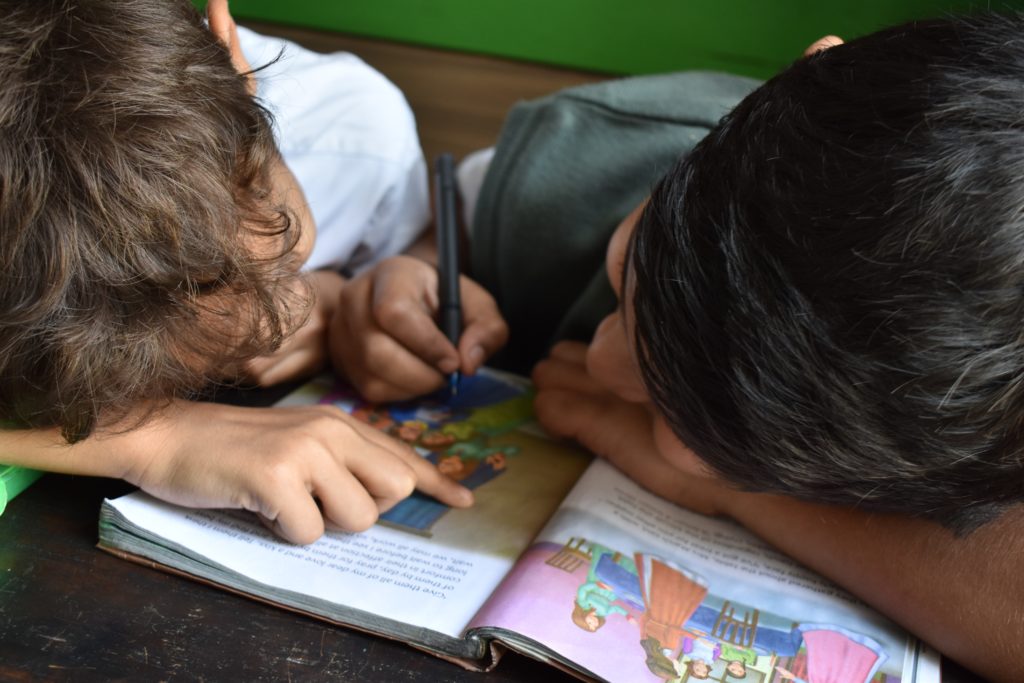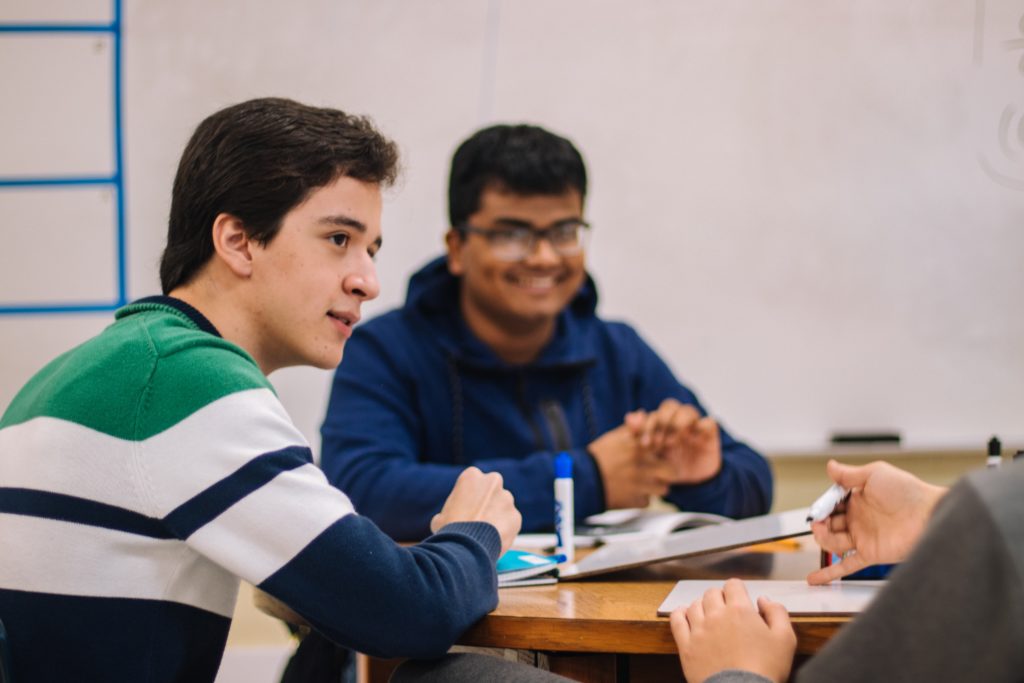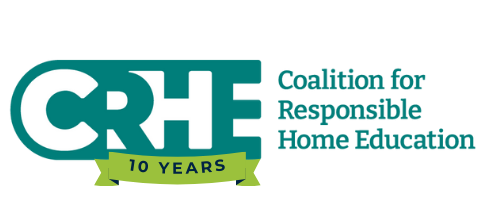CRHE was founded by homeschool graduates to advocate for the wellbeing of children being homeschooled today. Current laws do little to protect children’s right to an education or a safe home environment, leaving homeschooled children at risk of child abuse and educational neglect. We need change. We work to provide lawmakers with public policy guidance.
A Message for Lawmakers
Hear directly from homeschool graduates and learn how to think about homeschooling, and how to proactively approach barriers to legislative change. Learn more.
Inside Homeschool Policy
Current laws governing homeschooling are outdated and insufficient. On this page, you can read about homeschool policy and compare laws across states. Learn more.
Policy Recommendations
Read our common-sense proposals for protecting children. We work to close harmful loopholes without burdening responsible homeschooling parents. Learn more.
Our society’s failure to provide adequate safeguards to protect the rights of children who are homeschooled has serious consequences, including some that extend far beyond stereotypical homeschool settings. Learn more about the problems facing homeschooled children—and the importance of protecting all children’s rights—at Why Oversight.

Protecting At-Risk Children
In some cases, parents who are abusive remove their children from school to homeschool them in order to conceal their abuse. Systems for identifying child abuse and intervening frequently center on schools; this is why teachers in public schools are mandatory reporters of child abuse. Homeschooling allows parents to remove their children from this system of protections.
- Isolation is a key risk factor for child abuse, and homeschooling gives abusive parents the ability to isolate their children in a way they could not if their children attended school. Most states’ homeschool laws do not require children who are homeschooled to have any contact with mandatory reporters. Read our Homeschooling’s Invisible Children Database for more.
- Many schools require background checks before a parent is allowed to chaperone a school field trips. However, only two states have provisions to prevent parents with a history of child abuse or sexual assault from homeschooling their children. In most cases, schools’ hands are tied when a family with clear instability and risk factors removes their children from school.
Lawmakers in a growing number of states have seen the consequences of abusive parents using homeschooling to hide their abuse, and are taking action to prevent such cases.
Learn more:
- At-Risk Children: An Overview for Policymakers
- Homeschooling and Child Abuse
- Homeschooling’s Invisible Children Database
- At-Risk Homeschooled Children: An Issue Brief (PDF)

Children’s Right to an Education
At CRHE, we believe that children have a right to an education. Unfortunately, current laws do little to protect this right. The result is steep disparities in the quality of education received.
- In some states, homeschooling laws are so lax that parents need not have any contact at all with state or local education officials: these states have is no registration, and no assessment of student progress. Even statutes that appear on paper to have effective standards often offer loopholes, or are poorly enforced. In many states, homeschool requirements are so lax that compulsory education has effectively ceased to exist.
- Research on homeschooling suggests homeschool graduates may be half as likely as other students to attend college, and evidence of a homeschool “math gap” is widespread. In addition, the failure to create proper standards for homeschooling has created effects that extend far beyond what people consider “traditional” homeschooling, allowing homeschooling to function as a truancy loophole.
Lack of access to education has a profound effect on children’s future. We urge lawmakers to take steps to ensure that homeschooling is used to educate children, and not to hold them back.
Learn more:
- Educational Neglect: An Overview for Policymakers
- Homeschooling & Educational Neglect
- Academic Achievement
- Homeschool Outcomes
- Community Voices (alumni stories)

Support for Homeschooled Students
Participation in public school athletics and other extracurriculars has pronounced benefits for children’s socialization, self-esteem, and leadership skills. In 2016, we surveyed 150 homeschool graduates about their athletics participation; respondents overwhelmingly believed that athletic participation was beneficial to homeschooled students. We urge policymakers to embrace homeschool participation in public school athletics and other extracurriculars.
School districts can support homeschooled children in additional ways as well:
- Allowing homeschooled students to enroll part-time in public school for the purpose of taking individual public school classes, particularly at the high school level.
- Offering remote instruction programs that involve synchronous education.
- Creating homeschool assistance programs that provide families with reimbursements for educational expenses while offering accountability, enrichments, and guidance from teachers.
Homeschooled children benefit when there is a positive, cooperative relationship between school districts and homeschooling families. We encourage school districts and policymakers to offer access to services and support. Children benefit when their interests are put first.
Learn more:
- Who ‘Counts’ as Homeschooled?
- Homeschool Resources & Support
- Homeschool Sports Access by State
- 2016 Homeschool Athletics Survey
What Homeschool Graduates Are Saying
At CRHE, we work with an extensive network of young adults who were homeschooled as children and teens. We are alumni-founded and alumni-run, and work to elevate alumni voices.
On at-risk children:
“My mother informed me that from now on we were all going to be ‘homeschooled’ so that no more nosy teachers would be interfering in ‘our’ (her) lives. One of my youngest stepsiblings had made some mention to a teacher of the rampant domestic violence that routinely rampaged through our home. . . . Homeschooling was the first step my mom took to make sure no one could get involved through children’s loose tongues ever again.” ~ Elizabeth W.
“My father was physically, verbally, and emotionally abusive. Every abuse had a magnified effect on us because there was no escape from our home environment, and every ideology taught by our parents had a manifold influence on us because we were isolated from the influence of other people.” ~ Kimberly R.
On academic accountability:
“My kindergarten through eighth grade experience [in Pennsylvania] provided me a mostly balanced, interesting, and engaging homeschool program. Every year, we submitted a portfolio to our licensed evaluator . . . . In New Jersey, things fell apart. Without oversight, there was no need to think about compiling a portfolio. Without state standards, there was no benchmark for my progress. We still tried to follow the Pennsylvania guidelines for high school . . . but no one was there to check up on us or offer help.” ~ Caitlin T.
“If there had been more oversight, my mom may have been able to get more motivated to get organized and give me and my sisters the education we needed. My sisters and I would not be in the very difficult place we are right now because of being under educated.” ~ Sierra S.
On access to public school resources:
“Homeschooled students should have resources available to them that are also available to public school students. In the case of athletics, these resources help keep homeschooled kids active, expand their social circles and introduce them to people with different experiences, and teach them lessons from physical coordination to teamwork.” ~ Rachel O.
“Homeschooled students need the opportunity to socialize, work with a team, and take constructive criticism from a coach. It helps as they grow up and join the workforce, giving them essential tools for being a good contributor to society.” ~ AmandaWe
Copyright © 2024 · All Rights Reserved · Coalition for Responsible Home Education
Nonprofit Website by GivingPress · RSS Feed · Log in





